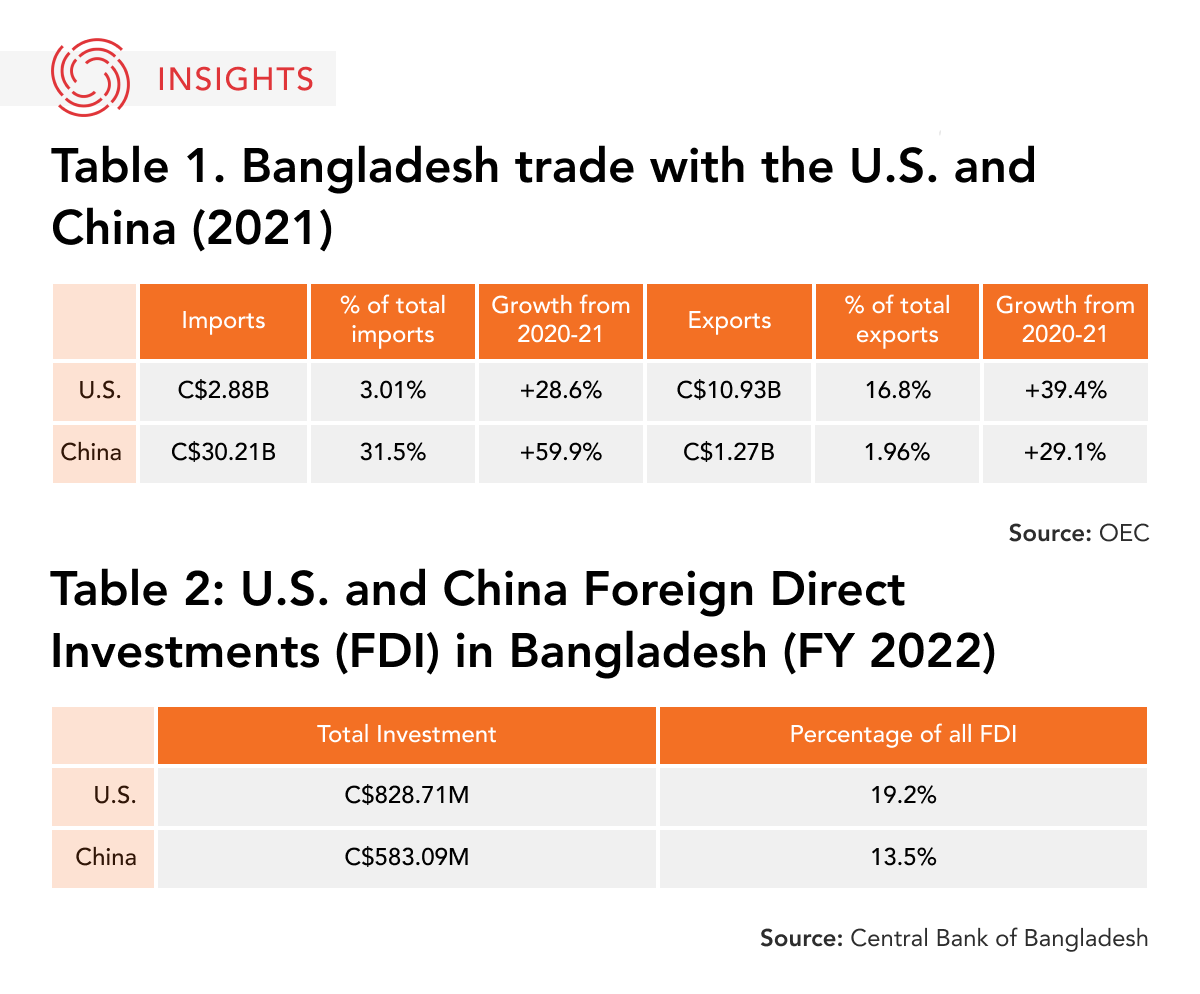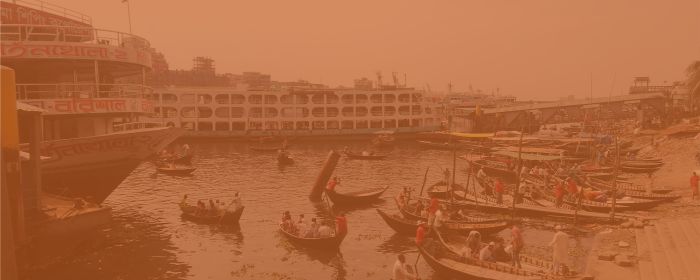The Takeaway
Staying true to its non-aligned foreign policy position, Bangladesh formally announced its first Indo-Pacific Outlook (IPO) on April 24, outlining 15 objectives in broad strokes. Dhaka has evidently tried to balance its interests and relations with both Washington and Beijing in its IPO. But given Bangladesh’s strategic geopolitical position in the Bay of Bengal, its growing economic credentials, and increasing U.S.-China competition, the country may be forced to choose sides to achieve its goal of becoming a developed nation by 2041.
In Brief
On April 24, guided by its foreign policy dictum “friendship towards all and malice towards none,” Bangladesh released its IPO, with objectives including deepening sub-regional partnerships, ensuring maritime security, combating transnational crime, and achieving sustainable development and supply chain resiliency. The document outlines Dhaka’s objectives to engage with other economies with interests in the Indo-Pacific region and to further peacekeeping and security efforts. However, Bangladesh’s IPO lacks a specific action plan for achieving its objectives and fails to identify clear priorities.
Implications
Bangladesh's 720-kilometre-long coastline on the northern littoral of the Bay of Bengal clearly influenced the country's IPO, which focuses mainly on maritime security. But the IPO also echoes the U.S.'s Indo-Pacific Strategy and its goals around maritime security and combating piracy, terrorism, and transnational organized crime. Bangladesh’s IPO notably aims to develop the “blue economy” through the sustainable management of oceans and seas. However, Dhaka’s formal Indo-Pacific approach — an “outlook” rather than a “strategy” — stops short of providing any clear directions.
Bangladesh’s economic and diplomatic ties with the U.S. have grown under the Biden administration, but its dependence on Chinese investments has also increased during the same period. In March 2022, Victoria Nuland, the U.S. under secretary for political affairs, during her visit to Bangladesh, shared Washington's interest in onboarding Dhaka to its Indo-Pacific Strategy (IPS), which has elements to control China's growing influence in the region. The proposal was reiterated by Rear Admiral Eileen Laubacher earlier in 2023. Bangladesh, like most Asian countries, hesitated to ruffle China's feathers, especially because it is indebted to Beijing for various infrastructure investments. While there are resonances with the U.S. and its allies’ Indo-Pacific goals in establishing a rules-based, “free and open Indo-Pacific,” some observers say Bangladesh's IPO is less of a plan and more of a mechanism to placate both China and the U.S.

Notably, the IPO was released on the same day that Bangladeshi Prime Minister Sheikh Hasina started her 15-day diplomatic tour of Japan, the U.K., and the U.S. Some experts observed that the Awami League-led government released the IPO to distract countries, especially the U.S. and its allies, amid growing concerns regarding the trend of declining democracy in Bangladesh. The U.S. and its allies have been demanding a fair election next year under a neutral caretaker government.
What’s Next
-
China-led Rohingya repatriation strategy
In May 2021, during the Chinese ambassador's visit to Dhaka, China committed to supporting Bangladesh in the Rohingya repatriation process. Playing host to approximately a million Rohingya refugees over the years has put a strain on the Bangladeshi economy’s resources. Under Chinese mediation, Bangladesh is fast-tracking repatriation of refugees from Cox's Bazar to Myanmar's Rakhine state. Consequently, Bangladesh is unlikely to unsettle the China-led process even as the latter is seemingly giving international legitimacy to the junta government in Myanmar. Experts say the lack of IPO objectives ensuring Rohingya refugees' long-term safety can be attributed to Chinese influence.
-
Caught in the middle
When Biden took office, Dhaka established a “third-way balancing” system with Washington. It aimed to use U.S.-Bangladesh ties to leverage better relations with India and China, both of which have been competing for influence in the coastal country. However, as U.S.-India relations continue to strengthen, Bangladesh may soon be forced to choose a side between the U.S. and China.
-
Agri-food opportunities for Canada
The eighth objective of Bangladesh’s IPO strives to leverage “domestic agriculture, manufacturing and services sectors towards building resilient regional and global value chains” to promote the “free flow of commerce” among Indo-Pacific nations. This statement aligns with Canada’s Indo-Pacific Strategy promoting economic investment in sectors including agriculture and fisheries. Bangladesh’s fishing industry has grown sixfold over the last 30 years and currently ranks third globally in fish extraction from open water bodies and fifth in aquaculture production. However, the industry lacks proper infrastructure in drainage management, sustainable methods, and river governance; these areas provide potential opportunities for Canadian engagement and investment.
- Produced by CAST’s South Asia team: Dr. Sreyoshi Dey (Program Manager); Prerana Das (Analyst); Suyesha Dutta (Analyst); Silvia Rozario (Analyst).




